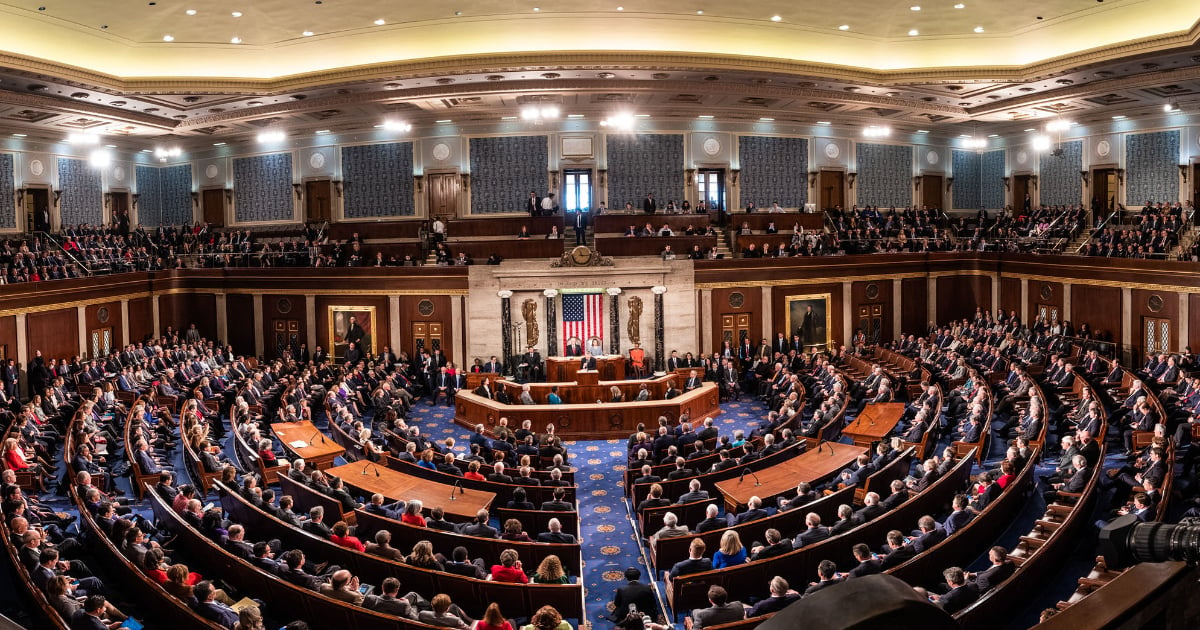
Related videos:
The United States House of Representatives took a crucial step on Monday by approving the Bolívar Law, a bipartisan piece of legislation aimed at restricting economic operations with Nicolás Maduro's regime in Venezuela.
The regulation, officially titled "Law on the Prohibition of Operations and Leases with the Illegitimate Authoritarian Regime of Venezuela," was introduced by Florida Congress members Mike Waltz, a Republican and future national security advisor to elected President Donald Trump, and Debbie Wasserman Schultz, a Democrat.
"We must maintain the existing sanctions against the regime and seek to expand them to minimize Maduro's resources to abuse the freedoms and prosperity of the Venezuelan people. This legislation sends a clear and powerful message to Maduro, as well as to other dictators around the world, that there will be no appeasement, no tolerance, and no reward for their illegal and dishonest actions," stated Waltz in a statement.
The purpose of the Bolívar Law is to "provide a financial lifeline" to the Venezuelan government, the Republican explained. "Our policy should be based on solidarity with the brave activists fighting to break the chains of oppression, not on offering assistance and comfort to their oppressors," he stated.
The regulation strengthens the penalties established in the National Defense Authorization Act of 2020, which prohibits the Department of Defense from entering into contracts with companies that have ties to entities controlled by the Maduro regime.
This tightening aims to prevent international resources from being used to sustain what Waltz described as Maduro's "repressive apparatus."
Republican Congresswoman María Elvira Salazar celebrated the approval in the House of Representatives, highlighting that this law represented an additional blow to the financial structure of the regime.
"The legislation provides an additional financial lifeline for the repressive apparatus of Maduro's regime," he expressed in a message shared via X.
The bill now needs to be discussed and voted on in the Senate, where it enjoys broad bipartisan support, significantly increasing its chances of becoming law without any hurdles.
This movement takes place against the backdrop of political tensions in Venezuela, where the presidential elections on July 28 were deemed not free, fair, or democratic by international observers. The opposition denounced fraud after showing results that overwhelmingly favored the candidate Edmundo González, who is currently in exile in Spain.
In recent years, the Joe Biden administration relaxed certain economic sanctions to encourage negotiations and potential free elections. These relaxations included licenses for oil companies, such as the American company Chevron, to operate in Venezuela.
However, Waltz criticized these measures and emphasized the need to maintain and expand the sanctions to minimize the regime's access to resources that could be used to perpetuate abuse against the Venezuelan population.
State of Relations Between Venezuela and the United States
Since 2019, Venezuela and the United States have not maintained formal diplomatic relations. This rupture occurred after the Trump administration recognized Juan Guaidó as interim president, challenging Maduro's legitimacy.
In response, Maduro expelled the U.S. diplomatic staff and closed the Venezuelan embassy in Washington.
Despite the lack of official diplomacy, there are limited communication channels to address specific issues, such as the release of American citizens detained in Venezuela or the management of the humanitarian crisis.
The United States continues to recognize the opposition forces as legitimate representatives of the Venezuelan people, even though the interim government was dissolved in 2023.
With the Bolívar Law, the United States reaffirms its strong stance against Maduro's authoritarian practices while supporting the rights and prosperity of the Venezuelan people in a context of strained relations and strict economic sanctions.
The tightening of sanctions is part of a strategy to limit the Venezuelan regime's access to international resources. These measures particularly impact the oil sector, which is the main source of income for Maduro's regime.
Recently, Maduro took advantage of Trump's electoral victory over Kamala Harris to propose a change in the dynamics of relations with the United States. Despite the conflicts and sanctions during Trump's first term, Maduro expressed his willingness to engage in constructive dialogue, assuring that his government is open to exploring new avenues.
The approval of the Bolívar Law by the U.S. Congress intensifies existing tensions, but it leaves open the possibility of changes in relations with the new Trump administration. This shift could have significant implications not only for Venezuela and the United States but also for Cuba and the entire region.
Filed under: